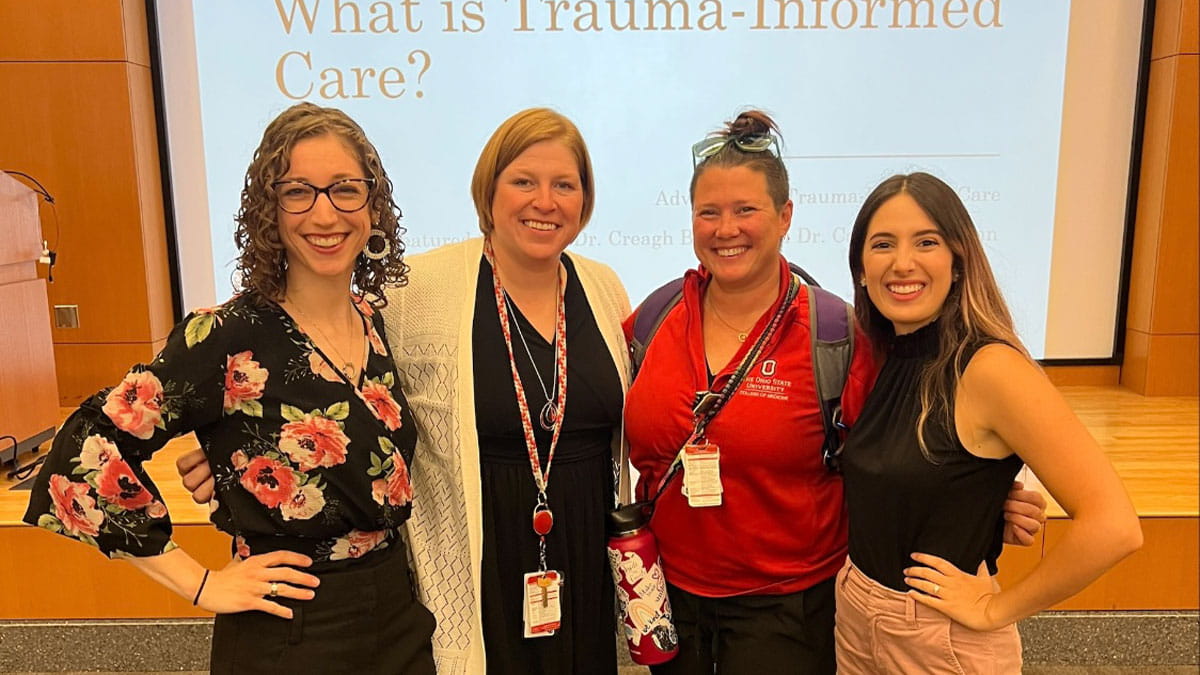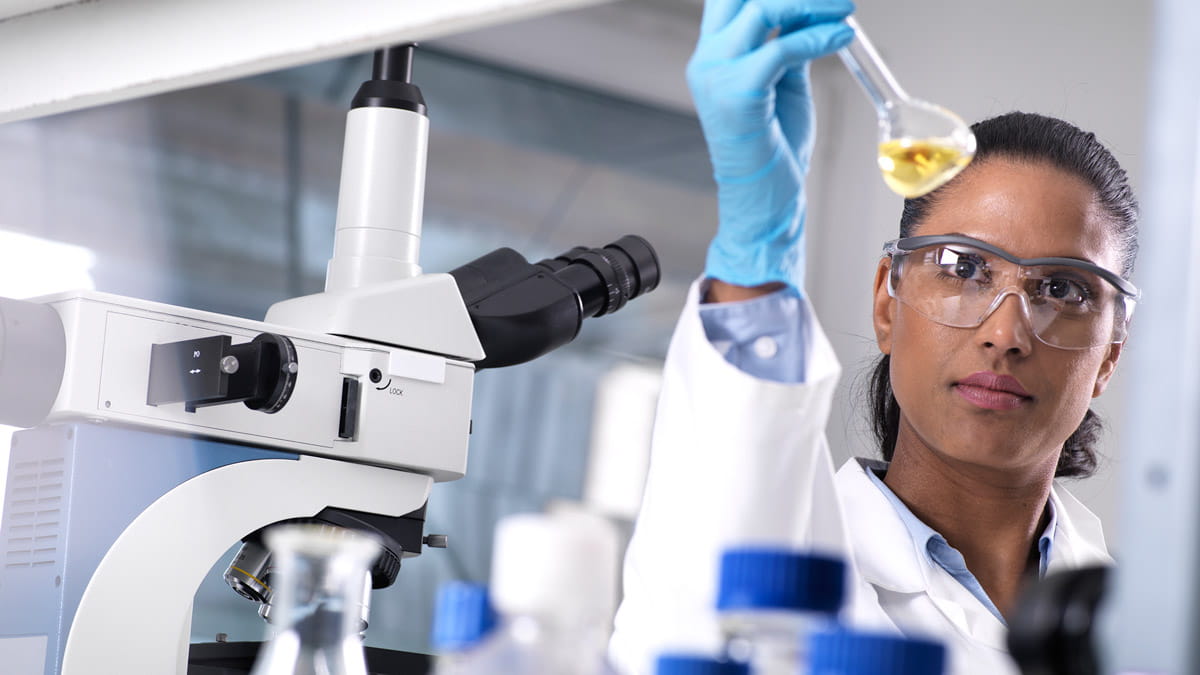Mihaylova lab aims to understand effects of diet and aging on cellular metabolism and cancer
 Researchers in the lab of Maria Mihaylova, PhD, at The Ohio State University College of Medicine and in the Ohio State University Comprehensive Cancer Center (OSUCCC) focus on understanding the effects of diet and aging on cellular metabolism. As organismal and cellular metabolism become increasingly deregulated with age, conditions arise that are potentially more conducive to the initiation and acceleration of age-related pathologies, including cancer.
Researchers in the lab of Maria Mihaylova, PhD, at The Ohio State University College of Medicine and in the Ohio State University Comprehensive Cancer Center (OSUCCC) focus on understanding the effects of diet and aging on cellular metabolism. As organismal and cellular metabolism become increasingly deregulated with age, conditions arise that are potentially more conducive to the initiation and acceleration of age-related pathologies, including cancer. The research
The research conducted in this lab is devoted to two primary lines of inquiry. The first line of inquiry is understanding normal homeostasis—cellular regeneration in the gastrointestinal tract, or gut. The lab seeks to discover how overall diet and even specific nutrients can impact the efficiency of intestinal stem cell regeneration, and which nutrients derive the best responses. The lab is also exploring how different modes of caloric restriction could potentially increase the body’s regenerative capacity of stem cells.The Mihaylova lab’s second line of inquiry is cancer metabolism. This research focuses on understanding how environmental factors, such as diet—and specifically the Western diet—can have a negative impact on cellular regeneration and predispose individuals to develop pathologies such as inflammation and cancer.
“We hope to discover how nutrients are sensed and utilized in adult stem cells and understand better how they influence tissue regeneration in the context of aging,” says Dr. Mihaylova, principal investigator of the grants in her lab and a member of the molecular carcinogenesis and chemoprevention program in the OSUCCC. “In addition, we also hope to elucidate metabolic liabilities in tumor cells that we can exploit in either novel or combinatory therapies.”
The Mihaylova lab employs a number of genetic and multidisciplinary analytical approaches, in both mouse models and 3D organoid culture systems, with the ultimate goal of translating metabolic liabilities into potential therapeutics. These discoveries will be particularly important for developing novel strategies to help individuals who are fighting infections or undergoing medical treatments such a chemotherapy and radiation exposure.
The principal investigator
Dr. Mihaylova is assistant professor of Biological Chemistry and Pharmacology at The Ohio State University College of Medicine and a faculty member of The Ohio State University Comprehensive Cancer Center – Arthur G. James Cancer Hospital and Richard J. Solove Research Institute. She earned her PhD at the University of California-San Diego and the Salk Institute for Biological Sciences, and completed her postdoctoral training at the Massachusetts Institute of Technology’s Whitehead Institute. An alumna of The Ohio State University, Dr. Mihaylova was first introduced to the research environment through a position she held in a laboratory led by Ohio State faculty at Nationwide Children’s Hospital.The grants
Dr. Mihaylova is a recipient of a 2019 AFAR Research Grant for Junior Faculty from the American Federation for Aging Research. This grant helps fund her lab’s study, “Understanding the Effects of Dietary and Microbially Derived Metabolites on Gut Epithelial and Immune Cell Homeostasis During Aging.”
Additionally, the National Institute on Aging awarded a transitional R00 grant to Dr. Mihaylova to explore how stem cell function declines with age. This study, “Understanding the Mechanisms of Age-Dependent Decline of Intestinal Stem Cell Function,” has received more than $700,000 in grant funding since 2017.
The team
Dr. Mihaylova’s lab members include Maria Festing, research associate; James Sledziona, postdoctoral fellow; Andrea Dunlap, PhD candidate in the Molecular, Cellular and Developmental Biology graduate program; and several rotating graduate students and undergraduate researchers.



